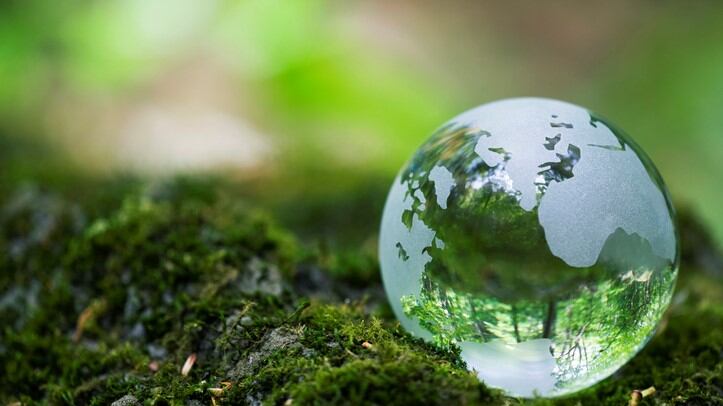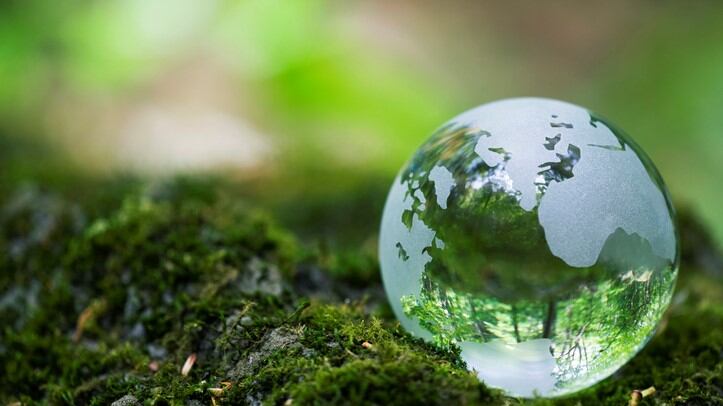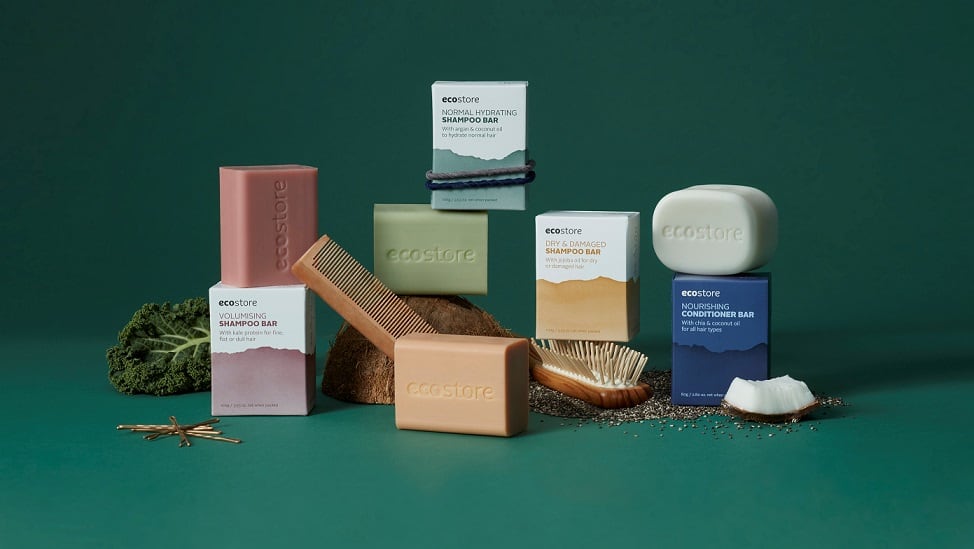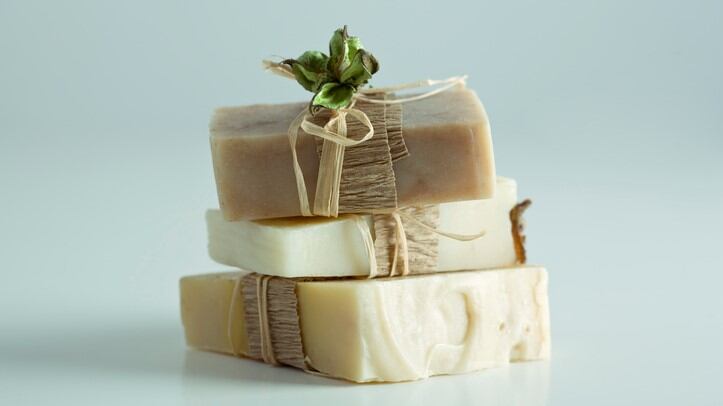1 – ‘Providing resources to do the right thing’: Reuse and refillable concepts on the sustainability agenda for L’Oréal
Reusable and refillable concepts are an area the L’Oréal Group has pinpointed for development as it works towards its ambitious sustainability goals, according to a leading regional exec.
The COVID-19 health crisis has accelerated the growth of certain categories including the demand for sustainable beauty products, especially among the younger generation of consumers.
As such, cosmetics giant L’Oréal is placing focus on sustainable development to meet the expectations of consumers in South Asia Pacific, Middle East and North Africa – dubbed SAPMENA – which is home to 40% of the world’s population with a median age of 28.
It is this consumer base that is pushing cosmetic companies to improve their sustainability standards and take responsibility for the products they put on the shelves.
2 – Transformative purpose: Cosmetics an ‘incredible platform’ to help First Nations communities thrive
The cosmetics industry has the resources and potential to prevent the loss of First Nations culture and knowledge that will ultimately benefit the environment, says one supplier that works closely with these communities.
Native Extracts is an Australian ingredient supplier that claims to have the largest library of native botanical extracts.
In the past few years, the company has observed a huge demand for Australian-made cosmetic products, or A-beauty.
The firm believes that the demand for A-beauty will continue on an upward trajectory on the back of clean beauty and increasing interest in native extracts.
3 – Long-term goals: Bondi Sands committed to forging more sustainable path in the next three years
Australian self-tanning and skin care brand Bondi Sands has outlined how it aims to become a leader in the sustainable beauty arena by focusing on packaging, ingredients and CSR.
Founded in Australia, Bondi Sands first launched in August 2012 and is currently is available in markets such as the US and UK in addition to its home market.
In the past two years, the company has been working on taking a more sustainable approach to its business.
“We started looking at going into this direction probably two years ago now. For most of our products, the packaging is made out of multiple parts – like springs and such. We started to become very aware of our own footprint. We saw it as an opportunity as well, not just to create a product that was sustainable, but create a product that would work better,” said founder and CEO Blair James.
4 – Bring your own water: HK firm develops soluble skin care tablets that pack a punch with prebiotic ingredients
Upcoming beauty brand MONO Skincare has developed a range of microbiome-friendly skin care tablets that are activated by dissolving them in room-temperature water.
The brand is currently in its pre-launch stage and offers seven products, including a facial serum and moisturiser, as well as a deodorant.
The minimalist brand focuses on the skin microbiome preserving skin biodiversity. The formulations contain prebiotics to support the skin microbiota, such as preBIULIN AGA.
The company claims that this ingredient hydrates 50% faster, 20% more intensively and 70% longer compared to hyaluronic acid.
5 – Mindful growth: Promoting sustainable consumption top-of-mind for waterless beauty brand founded by ex-Amazon VP
An ex-Amazon VP who founded waterless Singapore start-up Bhuman says early interest from big-name retailers won’t deter its focus on promoting sustainable consumption and insists there is no merit in growing the brand “just for the sake of growing”.
Bhuman is a waterless personal care brand by Yeeli Lee, former vice president of Amazon China and brand consultant that has worked with Unilever, Proctor & Gamble, Coty and The Estée Lauder Companies.
Lee developed the brand to an effort to combat climate change by reducing the usage of single-use plastics and lowering the carbon footprint of the beauty industry by using sustainable processes and waterless technology.
6 – ‘Small changes for a big difference’: Shiseido’s ELIXIR aiming for all key products to be refillable by 2025
Shiseido-owned ELIXIR is targeting to convert all of the brand’s flagship products into a refillable format by 2025 as part of the multinational’s sustainability goals.
Launched in 1983, ELIXIR is a skin care brand that specialises in anti-ageing care that has maintained its top sales ranking in Japan for 14 consecutive years according to Intage’s Nationwide Retail Store Panel Surveys.
ELIXIR currently offers refills for its lotion and milky lotion products. According to Shiseido, utilising refills can reduce ELIXIR’s use of plastic by 85%.
The Japanese cosmetics giant plans to accelerate these efforts and expand ELIXIR’s initiative throughout Asia and by 2023 it hopes to reduce approximately 400 tonnes of plastic annually.
7 – ‘Create lasting value’: NZ’s Emma Lewisham aiming to cut product carbon footprint ‘close to zero’ by 2030
Emma Lewisham has laid out targets to reduce its product carbon footprint as “close to zero as possible” by 2030 after achieving its goal of becoming a carbon positive beauty brand with a 100% circular designed business model.
The Kiwi brand was established in 2019 by CEO Emma Lewisham, who set out to develop a circular beauty brand that kept its resources in circulation to eliminate waste and reduce its carbon footprint in an industry that generates 120 billion units of waste every year.
On September 29, the brand announced that had achieved its goal of becoming a carbon positive beauty brand within the timeline it set for itself.
Over the last 12 months, the company worked with an independent environmental certification agency Toitū Envirocare.
8 – Masking impact: Is the sustainable beauty movement threatening Asia’s sheet mask fixation?
Facial sheet masks are an Asian beauty staple, but consumers are wising up to the waste these single-use products can generate and driving the need for more sustainable solutions to keep the category thriving.
Speaking to CosmeticsDesign-Asia at the height of the pandemic last year, specialty fibres company Lenzing expected the market size of facial sheet masks in Asia to grow as consumers began to place self-care and wellness as a top priority.
This was reflected in the growth of Lenzing’s Veocel brand which recorded double-digit growth in Asia last year. Veocel branded lyocell fibres are used as a facial sheet mask material for Asian brands including Watsons, Sensatia Botanicals and Annie’s Way.
While facial sheet masks have been considered ubiquitous in Asia for years now, awareness of environmental damage caused by single-use products – like facial sheet masks – are threatening their place in the Asian beauty routine.
9 – Conscious creation: Sigi Skin on how the need to raise its sustainability standards will impact future product development
The drive to increase its sustainability standards is pushing Singapore-based skin care brand Sigi Skin to rethink the formulation, packaging and the overall product portfolio of the brand.
Sigi Skin debuted in November 2018 with a line of superfood-infused skin care products. The brand transitioned into a fully vegan brand as of February this year.
Recently, the brand launched Idyllic Fields Day-Time Moisturiser, a 100% waterless moisturiser that is described as having a ‘soft souffle texture’.
This is not the brand’s first time launching a waterless product. In 2019, the company launched Dew Potion, a facial essence mist that contains three extracts – chamomile, Aqua 3G and maqui berry – and no fresh water at all.
10 – Smart and green: How NFC-enabled packaging can help beauty brands aid the environment as well as drive engagement
NFC-enabled packaging can help to minimise the environmental impact of product packaging, in addition to boosting engagement with consumers, claims a company that has recently worked with Paco Rabanne.
The brand recently unveiled a connected bottle for its Phantom fragrance for men.
The refillable robot-shaped bottle is embedded with an NFC chip. Users can simply tap it with their smartphone and gain access to the Phantom Universe, which houses exclusive content such as interactive filters, personalised playlists, and interactive games.
“Now, it's important for brands to exist somehow within the digital space even though their product is a physical product. They can reach out to spend time with the end-users. Of course, the point is to bring what is meaningful to the users because there is plenty of content available to them,” said Giuliana Curro from electronics firm STMicroelectronics, which is based in Geneva, Switzerland and has operations across the world including the US, France, Singapore, and China





